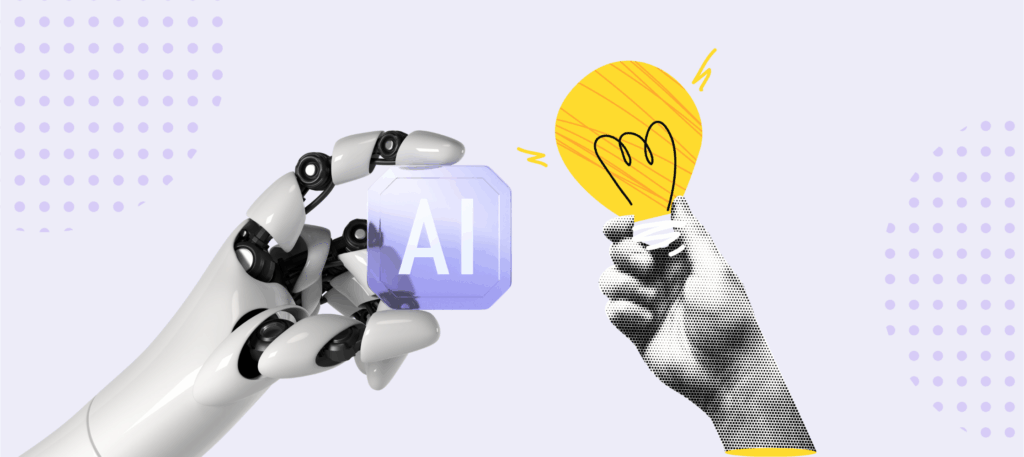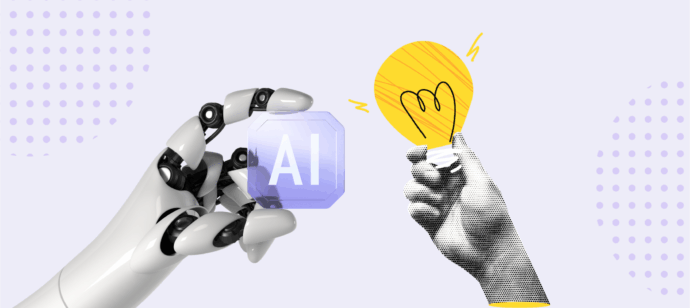Spoiler: No. But let’s talk about why.
It’s a fair question, and one we’ve been hearing a lot lately.
With the explosion of AI tools that can write content, optimise metadata, analyse competitors, and even suggest keywords, it’s tempting to think you can hand your SEO over to an algorithm and call it a day. After all, if machines can do it faster and cheaper, why not?
But here’s the thing: AI might be fast, but SEO isn’t a race. It’s a long game, and one that still needs human expertise to win.
Let’s break down why relying solely on AI for your SEO strategy is not just risky, but potentially damaging for your brand.
1. Writing Content ≠ Being Strategic
Yes, AI can generate content. But what’s the thought behind it?
SEO isn’t just about writing keyword-rich blogs or product descriptions. It’s about building a long-term content strategy that aligns with business goals, user intent, market demand, and technical performance.
AI can suggest keywords, but it won’t tell you how competitive they are, whether they’re relevant to your sales funnel, or how to map them across your site architecture for long-term success.
AI can generate topic ideas, but it can’t organise them in a strategic way that fits with your brand objectives, doesn’t know if you’ve already written about that topic, if your competitors have covered it better, or how to pick ideas that support your upcoming campaigns or goals.
That takes real SEO strategy, something AI simply doesn’t do well (yet).
2. AI Still Makes Mistakes & Misses Opportunities
Ask any SEO who’s audited AI-written pages: hallucinations, outdated facts, keyword stuffing, and factual inaccuracies are still common.
Even when AI gets it mostly right, it often misses subtle details that your SEO consultants wouldn’t overlook, like:
- Internal linking opportunities: AI rarely understands your site structure well enough to suggest meaningful internal links that support crawlability, distribute authority, or guide users deeper into your funnel.
- Conversion intent: AI might write content that’s informative, but it doesn’t consider what action you want the reader to take, or how to guide them there with strategic CTAs and trust signals.
- Semantic keyword relevance: AI can pick keywords based on volume or surface-level similarity, but it doesn’t fully grasp semantic relationships or know how to naturally weave in secondary terms that support topical authority.
- Content cannibalisation risks: AI won’t cross-check existing pages to avoid duplicating content or competing for the same keywords, which, as SEO consultants would know, can dilute your SEO performance instead of improving it.
- Opportunities to reuse or repurpose existing assets: Instead of reinventing the wheel, an SEO strategist might spot ways to update, merge, or optimise older content to get more value from what you already have.
- Localised or industry-specific nuance: AI may not account for regional phrasing, industry jargon, or customer pain points that are obvious to a human but invisible to a machine trained on generalised data.
- Competitor differentiation: AI can’t easily analyse your competitive landscape or create content that directly positions your offering as the better choice in a crowded market.
That’s why every piece of AI-generated content should go through a thorough human review by someone who actually knows how to write SEO content that works.

3. Search Engines Are Smarter Than You Think
Search engines are evolving to prioritise experience, expertise, authoritativeness, and trustworthiness (E-E-A-T), and they’re getting better at spotting generic, low-value content.
AI-generated content often lacks depth, originality, or lived experience. That means it’s less likely to rank, and more likely to be flagged by Google’s quality algorithms.
If your content doesn’t serve real people first, don’t expect it to perform just because it ticks technical boxes.
4. … And People Are Smarter Than You Think Too
Even when it looks right, AI-generated content can still feel off.
Sure, AI can write in your brand’s tone of voice. It can follow structure, mimic phrasing, and tick all the technical boxes. But often, it still lacks something, and your audience can feel it. That something? Authenticity.
It’s not always obvious. The content might read fine at a glance. But dig a little deeper, and it starts to feel hollow or overly generic. It might miss the edge, empathy, human touch, or cultural nuance that makes your brand relatable.
Humans are surprisingly good at picking up on inauthenticity, even when they can’t explain why. And when your content doesn’t feel human, it won’t connect emotionally or build long-term trust.
5. Your Competitors Are Using AI Too
Let’s say you and 10 competitors use the same AI tool to write your blog posts. The result? Ten nearly identical articles with the same structure, insights, and language, none of which offer anything unique or valuable to your audience.
SEO isn’t about doing what everyone else is doing. It’s about doing it better. That requires creativity, experience, and differentiation, none of which AI can deliver on its own.
6. AI Works Alone. Your Agency Doesn’t.
One of the biggest advantages of working with a team of real SEO consultants (not content-generating bots) is the collaborative brainpower behind their decisions. When you work with a good digital marketing agency, your SEO strategy doesn’t exist in a vacuum. It’s shaped in collaboration with Paid Search specialists, UX designers, CRO experts, and analytics teams. Insights are shared, hypotheses are tested across channels, and strategies are aligned to drive stronger performance across the board.
For example, your SEO team might discover high-converting keywords that your Paid Search team can test in real-time. UX insights might influence how your content is structured for readability, accessibility, and mobile performance. Analytics teams might spot drop-off points that inform both SEO content updates and broader funnel fixes.
AI, no matter how advanced, can’t replicate the kind of interdisciplinary strategy-building that digital marketing agencies do. It doesn’t sit in meetings. It doesn’t ask questions. It doesn’t challenge assumptions. And it certainly doesn’t learn from cross-channel performance data.

So… Should You Use AI at All?
Absolutely. We’re not anti-AI. In fact, at Yoghurt Digital, we do use AI. But the key is: we use AI to support our experts, not replace them. AI is the assistant, not the author. Human experts still lead the strategy, review the output, refine the message, and make sure the content actually delivers results.
Final Word: You Still Need SEO Experts
AI tools are getting better, faster, and smarter. But SEO still requires people who understand your business, your customers, and your goals. Enter: SEO agencies like ours.
If you’re serious about sustainable SEO growth, you need more than a robot spitting out random content. You need SEO strategists, (human) copywriters, and technical experts working together, using AI where it helps, and sharing their human expertise.
Want to see what that looks like in action? Get in touch with our team and let’s build a smarter SEO strategy powered by both AI and human insight.


